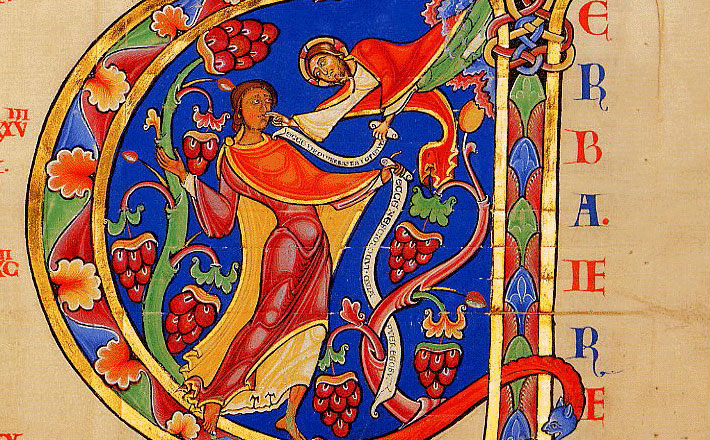Commentary on Romans 12:9-21
Like any other Pauline letter, Romans 12:9-21 focuses on the humanization of the gospel and the church.
According to Paul, the gospel affirms all human beings and its preaching in the church must equip people to appreciate diversity in all its forms. Having cautioned Christian practitioners to be transformed and renewed in their minds, attitudes, and entire conscience, the Apostle Paul makes a clarion call around the essence of love, and summons readers of the letter to employ love as an instrument that opens the door of hospitality and faith.
In Genesis 12-22, we read the story of two founders of faith whose lives were, at every step, guided first by hospitality and then by faith. Without hospitality, there is no love. Where there is both, we find the development of faith in God, Jesus Christ, and the Holy Spirit. The harmony of the Trinity is none other than the practice of love, because love is the essence of God. Love drives and builds a fellowship of believers. Love is the radiating orbit on which the cross of Jesus Christ is centered and calls on everyone to accept and share the same love.
It seems as though the Apostle Paul is rewriting and reinterpreting Jesus’ Sermon on the Mount found in Matthew 5:1-6:4, where Jesus summons believers to live out the principles of heaven instead of living with religious ideals (Romans 12:9-13). Using love as a basis and center of Christian living, the Apostle Paul encourages Christians to cultivate love as a virtue for both social and holy life. Genuine love, as Paul calls it, is not a one-time achievement, but a sought-after virtue enacted through daily practice and prayer (Romans 12:9-10). We may also say that love is an art, as one can learn, grow, and be taught to love. However, in many Christian circles, love is a lost art needed to be relearned. Ironically, theological schools, churches, and even families have lost the art of teaching about love, in both its nature and character.
The character and nature of love, as found in 1 Corinthians 13:8-13, is both vertical and horizontal; this love is indeed both godly and social. It is no surprise that in Romans 12:9-13, the Apostle Paul ends his exhortation on love by mentioning “hospitality.” The true picture of love is captured well by Desmond Tutu’s theology of Ubuntu,1 in which he lays out the qualifications of being human.2
The art of love among the body of Christ has always been needed. It is much needed in the 21st century in order to cherish diversity as the breeding ground of love. Therefore, a transformed and renewed mind should be the epicenter of genuine love; without this spiritually-gifted new life, human beings will always fall short of godly love. In essence, faith without love yields nothing. This result risks the decline in church membership, and consequently, the death of the local and global church.
The change of tone in verses 14-16 is striking; love does not get lived out in perfect environments, but is given birth, meaning, and essence in times when people are in conflict with each other. These verses encourage us to love in times of conflict, disagreements, and persecution as part of the Christian identity. As I mentioned above, Romans 12:1-21 is reinterpreting Jesus’ Sermon on the Mount as found in Matthew 5:44, as well as Jesus’ Sermon on the Plain in Luke 6:27-28. The 21st-century global church is called to live and serve within the context of these texts.
Love should be demonstrated to those outside of the confines of the church and denominational bounds. One could surmise that Paul’s experiences of being an apostle to the Gentiles opened to him a new world of love as he was welcomed by people who were not Jews. We might also pay attention to what we learn about the essence of love from those considered “outsiders.” The church may then see the stranger and the outside world as laboratories to exercise love (Romans 12:15).
However, the church in the 21st century struggles to live the gospel way; as a result, it has struggled to be consistent in its proclamation, both inside and outside of the church building. In all 13 areas mentioned in verses 9-13, a new dispensation of learning is urgently needed. Jesus, Paul, Peter, and the Gospel writers advocated for love. Likewise, today’s church and centers of theological education must relearn the art of love. If they do not, the church will slide into a world of irrelevancy. Even in first-world countries where there is much affluence, the love being preached from many pulpits is not the kind of love God teaches and demonstrates in the Bible. Sadly, we seem to be uncomfortable with the nature and character of love being stressed in Romans 12:1-21, because we have our own brand of love.
A revival of spiritual love and unity is urgently needed in today’s global church. Even among a diversity of clergy leaders, there is what we may call a bankruptcy of love. Thus, the Apostle Paul goes on to encourage harmonious living as a way to cultivate godly love in all people. Therefore, the love we are called to live out is not an emotional one, but one that comes from the transforming and spiritual rebirth of our minds, souls, and hearts. It is practical love in that it is experienced by both the self and the other; it is love lived out in ways that always cherishes others. This love seeks justice, forgiveness, reconciliation, and peace.
Notes
- Reverend Mpho Tutu describes Ubuntu as an ethic of interdependence that recognizes how all of our actions have an effect on the wellbeing of others. See What Is Ubuntu?, Desmond Tutu Peace Foundation, 2015, https://www.youtube.com/watch?v=SMSqZckROfA.
- Michael Battle, Reconciliation: The Ubuntu Theology of Desmond Tutu (Cleveland, Ohio: Pilgrim Press, 1997), 35-53.


August 30, 2020